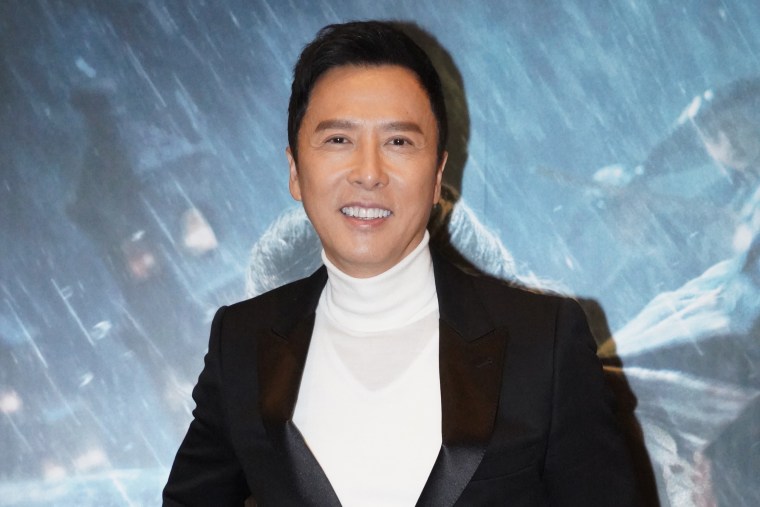Donnie Yen, who is starring in “John Wick: Chapter 4,” said he helped make the case to overhaul his character, which was initially conceived as a very stereotypical Asian man.
The actor, action director and martial artist told GQ Magazine in an interview this week he pushed back on his character’s initial identity, including his generic name and traditional wardrobe.
“The name was Shang or Chang,” he said in the interview. “Why does he always have to be called Shang or Chang? Why can’t he have a normal name? Why do you have to be so generic? Then the wardrobe again — oh, mandarin collars. Why is everything so generic? This is a ‘John Wick’ movie. Everybody’s supposed to be cool and fashionable. Why can’t he look cool and fashionable?”
Yen, who is Chinese, said director Chad Stahelski agreed to the changes, so his character was revamped with a stylish suit and a new name — Caine.
In the film, which premieres March 24, Caine is an assassin caught between the powerful High Table and his friendship with John Wick (Keanu Reeves).
Yen told GQ Asian stereotypes aren’t exclusive to “John Wick” but this case is indicative of Hollywood’s choice to often create one-dimensional Asian characters.
Yen, known in the United States for his role in “Rogue One: A Star Wars Story,” is considered one of China’s most prominent actors. His character in the space opera franchise “Chirrut Îmwe” was also set to be a generic martial artist in early drafts of the script, he said, until he insisted it be changed.
“One thing I pointed out is he was a stereotype. Typical master. Doesn’t smile,” he said during the interview. He said he helped flesh out his character after suggesting that they give him a sense of humor, challenging that trope.
In the top-grossing films from 2010 to 2019, 35% of Asian characters embody at least one common Asian stereotype like a martial artist, according to a 2021 study from the Geena Davis Institute on Gender in Media, the Coalition of Asian Pacifics in Entertainment and Gold House.
Sociologist Nancy Wang Yuen previously told NBC News that Hollywood generally repeats what’s worked in the past, including problematic cliches.
“The early representation of Asians were just East Asians, and the stereotypes were the accent, the exotic, the villain. All those tropes have not changed for 100 years,” she said. “So that’s why we have overrepresentation of the stereotype as well as the overrepresentation of East Asians [compared to other AAPIs], because Hollywood just reproduces itself.”
Stahelski and Lucasfilm did not respond to NBC News’ request for comment.
